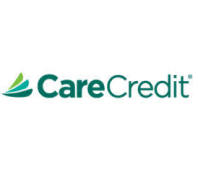Dog Bite Wounds: Treatment and Recovery for Your Pet Canine
Every dog owner hopes their pet will never experience aggression from another animal, but the reality is that dog-on-dog altercations happen. Dog bites can occur during a scuffle at the dog park, a territorial dispute during walks, or an unexpected encounter with an unfamiliar dog, even among the gentlest pets. Companion Animal Hospital wants to help pet owners understand how to manage dog bite injuries effectively.
The Hidden Dangers of Dog Bite Wounds
Dog bite injuries are deceptively complex. Dogs inflict damage differently than humans due to their bite mechanics and tooth structure. Canine teeth are designed to grab, hold, and shake, which means the visible puncture wound on the surface often represents just the tip of the iceberg.
Beneath the skin, there may be extensive tissue damage, bruising, and bacterial contamination that isn't immediately apparent. This hidden damage is why a dog that has been bitten by another dog should always have a professional veterinary assessment, regardless of how minor the incident may seem initially.
The First 30 Minutes After a Dog Bites Your Dog
Your actions in the first half hour after a dog bite incident can significantly impact your pet's recovery. First, make sure to separate the dogs safely. Do not grab collars with your hands or put your body in the way. Separate the dogs with water, loud noises, or physical objects.
Get the other owner’s contact information and the rabies vaccine status of the other dog, if possible. Then, focus on keeping your dog calm and still. Excessive movement can worsen internal injuries or increase bleeding from wounds you may not have discovered yet.
If your dog is severely wounded, call for emergency veterinary care immediately. Otherwise, create a quiet, comfortable space for your dog while you conduct a physical examination. Start from the head and work your way down, gently parting the fur to look for puncture wounds, scratches, or areas of swelling.
If you find wounds, resist the urge to clean them aggressively. Simple rinsing with clean water is sufficient until you can get veterinary care. Avoid using antiseptics or home remedies, as these can actually complicate treatment and delay healing. If your pet is bleeding, apply pressure with clean gauze. After the initial check, you can call a veterinarian for a more thorough evaluation.
Veterinary Treatment for Dog Bites
The complexity of dog bite wounds requires veterinary expertise that goes beyond basic first aid. Bite wound treatment for dogs involves comprehensive assessment using visual examination and diagnostic tools when necessary. The veterinarian may recommend X-rays to check for internal injuries.
Dog bite wound management includes proper care of any damaged tissues and assessment of whether surgical repair is necessary. The veterinarian will also make critical decisions about antibiotic therapy, pain management, and whether preventive measures against specific infections are needed.
The Recovery Process When Your Dog Has Been Bitten
Healing from dog bite wounds usually follows a predictable pattern when properly managed. Initially, you may notice minor swelling and discomfort around wound sites, which is normal as the body begins its healing process. The vet will provide specific instructions for wound care at home, including how to keep areas clean without disrupting the healing process.
Most dogs require activity restriction during recovery to prevent re-injury. This might mean leash walks only, no running or jumping, and avoiding situations where your dog might engage in rough play. The duration of these restrictions depends on the severity and location of injuries.
Physical healing is only part of recovery from a traumatic incident. Many dogs experience behavioral changes after being attacked, including increased anxiety, aggression, or fear around other dogs.
Some dogs benefit from gradual re-exposure to social situations under controlled circumstances, while others may need more intensive behavioral support. Talk to your vet for guidance on whether your dog might benefit from working with a dog trainer or veterinary behaviorist, and brush up on dog bite prevention tips.
Dog Bite Treatment for Pets in Knoxville, TN
Dog bite incidents are serious medical emergencies that require veterinary attention. The complexity of these injuries means that what appears minor on the surface may require extensive treatment from a veterinarian like Companion Animal Hospital. If your dog has been involved in an altercation with another dog in Knoxville or nearby cities like Fountain City or Powell, contact us for urgent veterinary care.
When you subscribe to the blog, we will send you an e-mail when there are new updates on the site so you wouldn't miss them.








